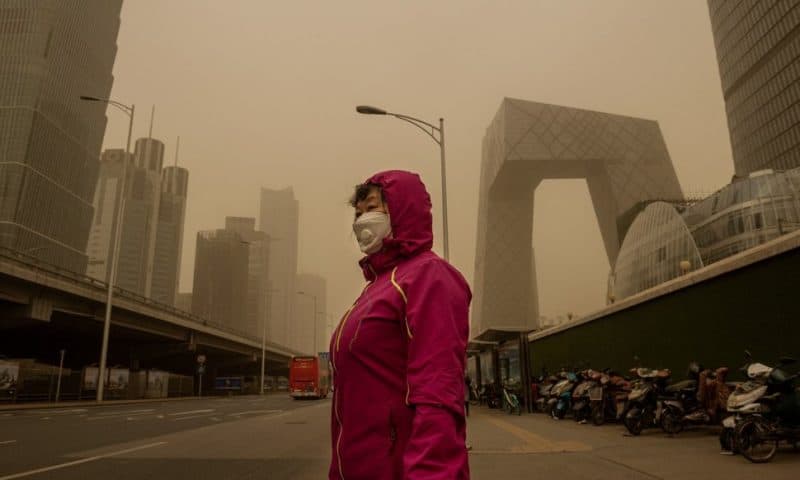The new report found that all but three of those cities were located in China.
Just about two dozen cities, from a sample of more than 160 urban centers, contribute more than 50% of greenhouse gas emissions, according to a new report.
The report, published Monday in the journal Frontiers in Sustainable Cities, found that just 25 cities, analyzed from a sample of 167 metropolitan areas in 53 countries, comprise 52% of greenhouse gas emissions.
All but three of those cities, Moscow, Istanbul and Tokyo, are located in China, including major cities such as Shanghai and Beijing.
The report revealed that per capita emissions were higher in cities located in wealthier countries compared to developing nations. While total contributions to worldwide emissions are higher in China, a developing nation, they are higher per capita in the United States.
Researchers found that energy usage for residential, commercial and industrial electricity were responsible for up to 80% of emissions in Europe and North America. In about one-third of the cities analyzed, more than 30% of emissions came from road travel. Travel by water, rail and air made up less than 15% of emissions.
The report noted that urbanization in developing cities led to increased vehicle traffic, therefore leading to a larger amount of emissions from those sources.
Additionally, researchers found that waste disposal accounted for a small amount of greenhouse gas emissions, but noted that “technology advances in waste treatment and emissions capture and reuse need further development toward carbon-neutral waste disposal and recycling systems.”
Researchers warned that in order to limit global warming in this century, cities need to “transform from a resource-dependent industrialization path to an innovation-driven sustainable development path.”
Additionally, they advised that “policies should be formulated to facilitate this transformation and upgrade of traditional industries, the development of cleaner supply chains and the formulation of low-carbon lifestyles.”

